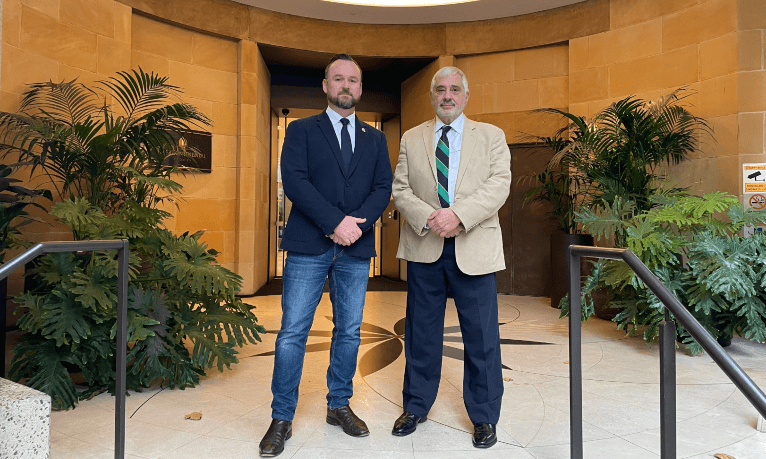Build financial security post-transition

There are many options for veterans to find financial security after transitioning. Experts in the veterans’ financial advice sector share their tips for fiscal success.
At a glance:
- One in five young veterans say they are depending on or will depend on financial assistance after transitioning.
- The experts say veterans should start planning their financial future as soon as possible, ideally before even leaving the military.
- Wealth creation, such as via shares or investment properties, is one strategy for fiscal success.
- Financial plans may be based on individual goals, but the journey is rarely taken alone – military partners play a vital role in financial success.
The ADF offers numerous financial benefits to serving members.
There’s the tax-free day rate for those on deployment, alongside free or subsidised accommodation, meals, and medical and dental care. Home loans are available through the Defence Home Ownership Assistance Scheme, and typically the superannuation on offer is highly competitive.
All of this means savings and investments may be built more quickly than for those outside Defence.
And yet, in the last year alone, RSL LifeCare provided more than $380,000 in financial and housing support for 165 veterans.
In response to recent RSL NSW member research, one in five veterans under 50 told us they are using or will need financial assistance.
Almost the same proportion are using or will need housing assistance. And nearly half need or will need education scholarships to upskill for the post-military job market.
Not all veterans are in a financially secure position. So what strategies can veterans use for fiscal success? We spoke with two experts in veterans’ finance advisory to find out.
It’s never too late to plan
Why is wealth creation a good idea? The main reason is it gives you more choices in the future, says Warren Loudon, co-founder and co-director of Loudon & Vaughan Private Wealth.
Warren recommends taking every opportunity during service to build assets and a nest egg. The problem with transitioning out of Defence without some sort of nest egg is the fact that so much financial security can disappear — from the dependable pay cheque to the subsidised housing to the free medical care.
“The people who have success are the ones who come back from deployment and buy investment properties, shares and so on,” Warren says.
“It’s best to try to hold off on the fancy car, because that’s a depreciating asset. If you can make those lump sums work for you, it’s much better for your future.”
The important message here is that the sooner the planning is done, the better.
“Veterans need to plan their financial future as early as possible,” he says. “They need a strategy for where they’re going next. In fact, it’s best if you do it while you’re still in the military.”
“If you have to study, do it while you’re in the military. If you have to retrain, do it while you’re in the military. If you have any medical problems, sort them out while you’re in the military. And if you can be medically discharged, that is the preferred method of exiting.”
The reason for this final point, Warren says, is that if you’re medically discharged, you can access a Commonwealth Superannuation pension, which will pay you a percentage of your income and which, importantly, is not means tested. Therefore, you can find a job and have an independent income without it affecting your pension.
If people instead leave Defence and go through the Department of Veterans’ Affairs (DVA) to receive a DVA benefit, that benefit is usually means tested, so it will reduce or disappear if the individual begins to receive another income.
“It’s extremely complex,” he says, and highly recommends speaking with a DVA advocate to help with this – such as those available through RSL sub-Branches and our charity partner RSL LIfeCare Veterans Services – as well as seeking specialist financial advice.
“When transitioning out, people are offered $1,000 to talk to a financial planner. That is also a very good idea.”
Advice for financial freedom
All financial plans are based on individual goals. These goals might revolve around employment, lifestyle, travel, quality of life during retirement, and so on. Of course, this journey is rarely taken alone.
“A person’s significant other plays a vital management or supporting role, and that’s really important,” says Army veteran Wayne Bemet, founder and director of National Service Financial.
“In general, people in the military don’t have time to keep track of all of the different aspects of their finances, because they have to live and breathe their job, particularly when they’re away. So husbands, wives and partners should all be engaged in the financial process.”
Although it is often considered difficult for a Defence member’s partner to hold down a job, our experts say this is not always true. It very much depends on the partner’s career, and there are plenty of examples of entrepreneurial partners too.
What’s important is recognising the fact that partners play a vital role in financial success, whether they’re working or not, and that getting in early pays off dividends later on.
“The simplest form of financial success comes from paying attention early in your career,” Wayne says.
“I don’t think a lot of people realise what a great financial position they’re stepping into when they join the Australian Defence Force.
“It’s about coming up with a nice balance of serving the country and everything that’s involved in that, including jumping on a ship and seeing the world and having great experiences, but also tempering that with making the most of the financial opportunities.”
To learn more about securing your civilian financial future, book your place at RSL NSW’s upcoming webinar on ‘Financial freedom: Service, transition & retirement’ at 11am on 4 August 2022.







